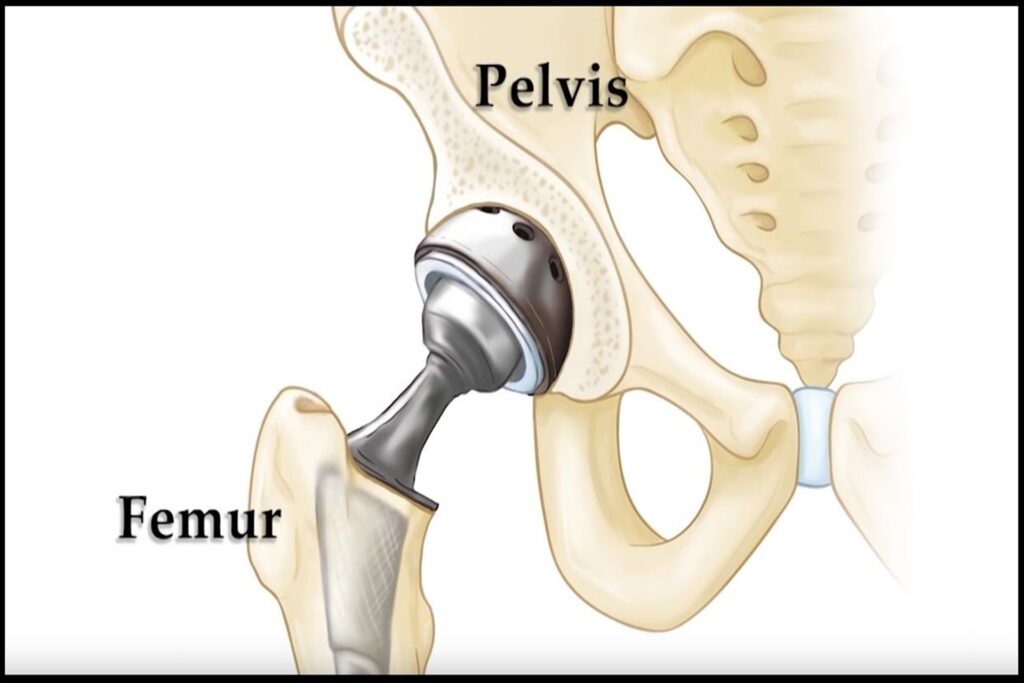
Overview:
Total hip replacement (THR) is a surgical procedure in which a damaged or worn-out hip joint is replaced with an artificial prosthesis. It is typically recommended for patients suffering from severe hip arthritis, fractures, or joint degeneration, leading to chronic pain and limited mobility. The goal of the surgery is to relieve pain, improve joint function, and restore quality of life.
Causes:
The most common reasons for total hip replacement are osteoarthritis, rheumatoid arthritis, hip fractures, and avascular necrosis, a condition where the blood supply to the hip bone is disrupted. Over time, these conditions cause the cartilage in the hip joint to wear away, resulting in pain, stiffness, and loss of function. In some cases, hip replacement is also performed due to congenital hip problems or severe injuries.
Symptoms:
Patients typically experience symptoms such as persistent hip pain, especially during walking, standing, or climbing stairs. Limited range of motion, stiffness, and difficulty performing daily tasks like dressing or sitting down are common. In severe cases, the pain may interfere with sleep, and patients may rely on pain medications to manage discomfort.
Treatment:
Total hip replacement involves removing the damaged parts of the hip joint (the femoral head and the acetabulum) and replacing them with artificial components made of metal, ceramic, or plastic. The procedure is typically done under general anesthesia, and the recovery time can vary depending on the patient’s overall health. After surgery, physical therapy is essential to strengthen the hip muscles, improve mobility, and ensure proper healing. Most patients experience significant relief from pain and improved function after recovery.
Precautions:
Post-surgical precautions include avoiding high-impact activities, heavy lifting, and certain movements like crossing the legs or twisting the hip. Patients are advised to follow rehabilitation protocols and attend follow-up appointments to monitor for complications such as infections, blood clots, or dislocation. Maintaining a healthy weight and avoiding smoking can help prolong the life of the hip prosthesis and prevent complications.
Prevention:
While hip arthritis and other causes of joint degeneration may not be preventable, maintaining a healthy weight, staying active, and avoiding injury can help protect the hip joint. Proper nutrition, including adequate calcium and vitamin D intake, can also support bone health. Early detection and management of hip problems can delay or prevent the need for surgery.
For expert hip replacement surgery, visit the KDM Hospital in Lucknow. The hospital offers advanced surgical techniques, including minimally invasive procedures, and provides comprehensive care, including rehabilitation services, 24/7 doctor availability, ambulance services, Ayushman card acceptance, and budget-friendly options for all patients.
